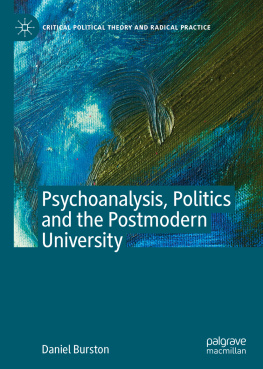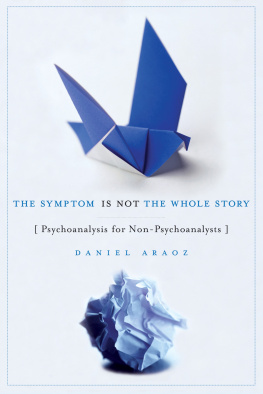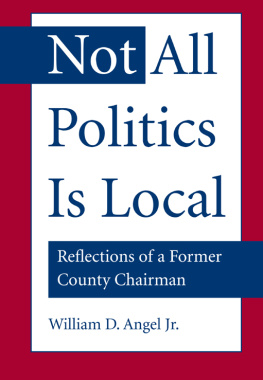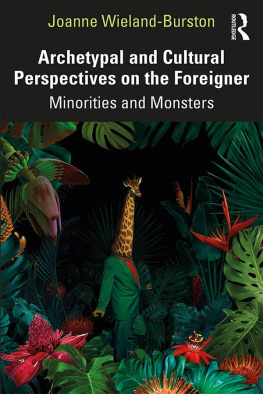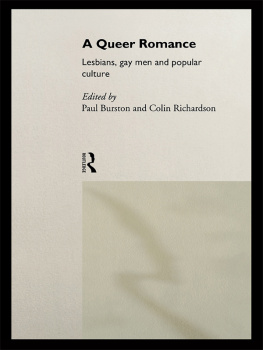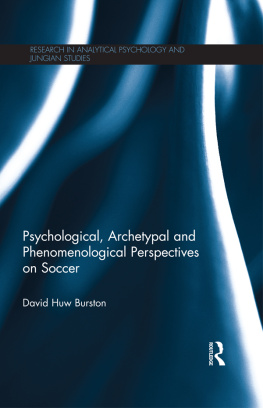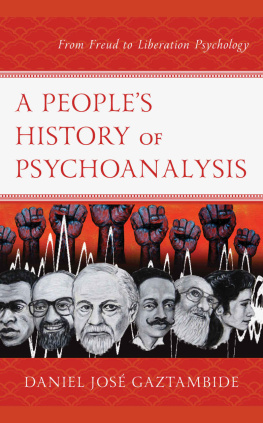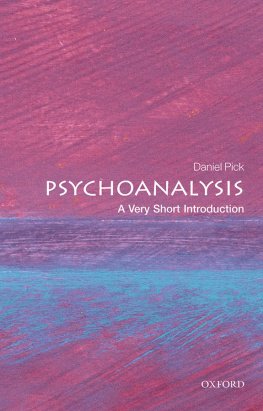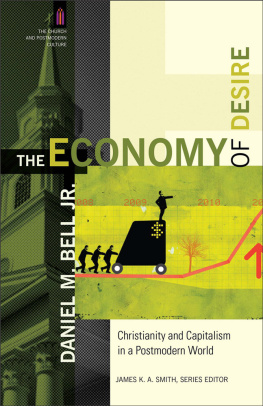Daniel Burston - Psychoanalysis, Politics and the Postmodern University
Here you can read online Daniel Burston - Psychoanalysis, Politics and the Postmodern University full text of the book (entire story) in english for free. Download pdf and epub, get meaning, cover and reviews about this ebook. year: 2020, publisher: Springer International Publishing, genre: Politics. Description of the work, (preface) as well as reviews are available. Best literature library LitArk.com created for fans of good reading and offers a wide selection of genres:
Romance novel
Science fiction
Adventure
Detective
Science
History
Home and family
Prose
Art
Politics
Computer
Non-fiction
Religion
Business
Children
Humor
Choose a favorite category and find really read worthwhile books. Enjoy immersion in the world of imagination, feel the emotions of the characters or learn something new for yourself, make an fascinating discovery.
- Book:Psychoanalysis, Politics and the Postmodern University
- Author:
- Publisher:Springer International Publishing
- Genre:
- Year:2020
- Rating:5 / 5
- Favourites:Add to favourites
- Your mark:
- 100
- 1
- 2
- 3
- 4
- 5
Psychoanalysis, Politics and the Postmodern University: summary, description and annotation
We offer to read an annotation, description, summary or preface (depends on what the author of the book "Psychoanalysis, Politics and the Postmodern University" wrote himself). If you haven't found the necessary information about the book — write in the comments, we will try to find it.
Psychoanalysis, Politics and the Postmodern University — read online for free the complete book (whole text) full work
Below is the text of the book, divided by pages. System saving the place of the last page read, allows you to conveniently read the book "Psychoanalysis, Politics and the Postmodern University" online for free, without having to search again every time where you left off. Put a bookmark, and you can go to the page where you finished reading at any time.
Font size:
Interval:
Bookmark:
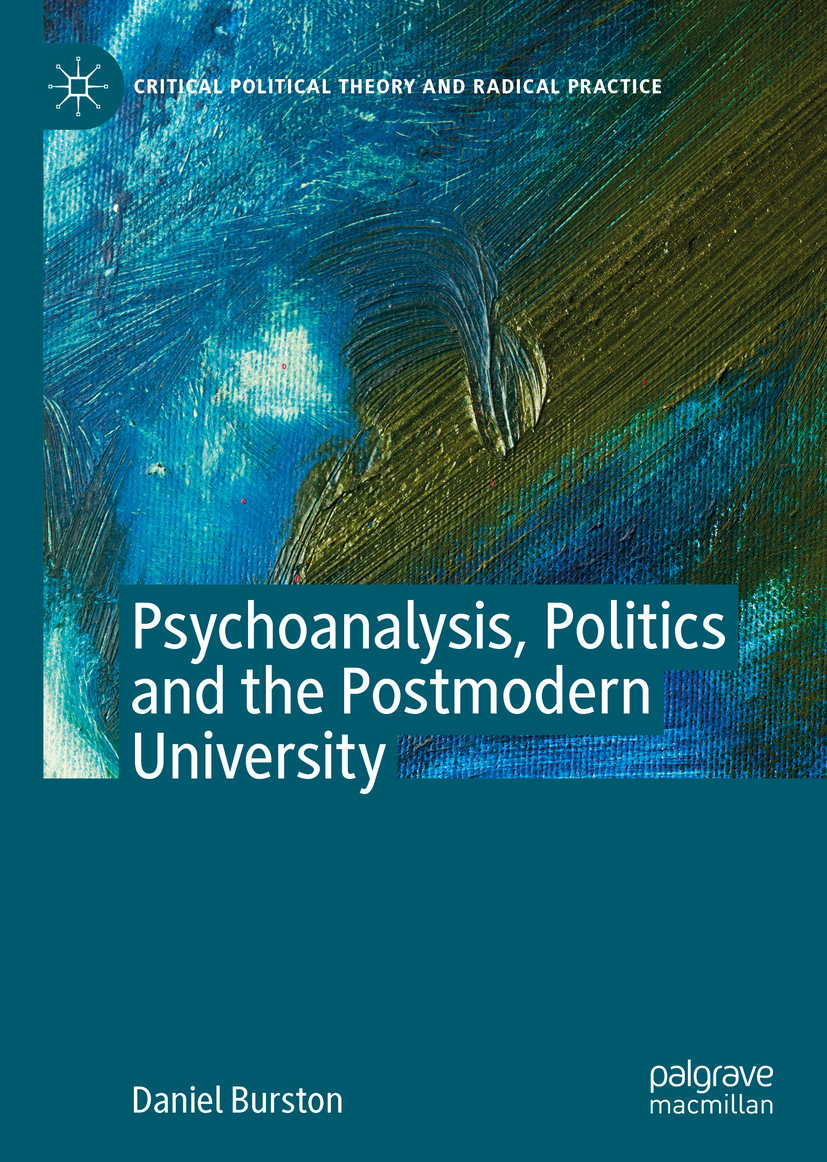
The series introduces new authors, unorthodox themes, critical interpretations of the classics and salient works by older and more established thinkers. A new generation of academics is becoming engaged with immanent critique, interdisciplinary work, actual political problems, and more broadly the link between theory and practice. Each in this series will, after his or her fashion, explore the ways in which political theory can enrich our understanding of the arts and social sciences. Criminal justice, psychology, sociology, theater and a host of other disciplines come into play for a critical political theory. The series also opens new avenues by engaging alternative traditions, animal rights, Islamic politics, mass movements, sovereignty, and the institutional problems of power. Critical Political Theory and Radical Practice thus fills an important niche. Innovatively blending tradition and experimentation, this intellectual enterprise with a political intent hopes to help reinvigorate what is fast becoming a petrified field of study and to perhaps provide a bit of inspiration for future scholars and activists.
More information about this series at http://www.palgrave.com/gp/series/14938

Cover illustration: Lior Mizrahi / Photodisc / Getty Image
This Palgrave Macmillan imprint is published by the registered company Springer Nature Switzerland AG.
The registered company address is: Gewerbestrasse 11, 6330 Cham, Switzerland
For Paul, with thanks
When I began writing this book several months ago, I had just finished teaching a lively graduate seminar on Freud. It dawned on me that my recent survey of the history and politics of psychoanalysis still owed much to the efforts of my friend and former teacher, Paul Roazen (19362005). Though we lost touch for two years before his death, the news of his passing stunned me. When Paul and I became friends twenty years previously, he was considered a gadfly in psychoanalytic circles. Given how prolific he was, right up to the end, I fully expected him to continue disconcerting the authorities and making mischief well into his seventies. Unfortunately, he died at age sixty-nine, and news of his death only reached me as I was preparing to assume the chair of my department, so instead of giving him the tribute he deserved, I wrote a brief memoir which was published inAmerican Imago(Burston 2006). In the years that followed, I was simply too busy with administrative and other commitments to celebrate his contributions to scholarship in a more robust and comprehensive fashion.
As a result, perhaps, Pauls pioneering work has suffered from considerable neglect lately, and it dawned on me that a series of essays on Freuds impact on America and its universitiestopics very dear to Pauls heartmight furnish a welcome opportunity to pay my respects, and remind future scholars of the pivotal role Paul played in creating (or at least deepening and enlivening) their own fields on inquiry. Though a political scientist by training, Paul was a pioneer in the history of psychoanalysis, a field that still has considerable relevance for clinicians, on the one hand, and for social scientists, on the other. Why? Because psychoanalysis is not only a method of treatment for disturbed individuals. Like Marxism, it was a mass movement and a philosophy of history, which spawned all kinds of fruitful developments (and quite a few blind alleys) in the social sciences during the twentieth century.
Paul began his career as a political scientist, so in that spirit, I devote Chap.to enumerating and describing the dominanttypesof authority (religious, secular, and scientific), and the ways in which they clash and converge in the history of the West. These reflections on the nature and function of authority set the stage for much of what follows in subsequent chapters on Freud and Nietzsche . I then address what Erich Fromm described as differentmodesof authority , or the ways in which authority is wielded and expressed within each of these three domains. Rational authority, irrational authority, and anonymous authority do not denote spheres of competence or power, but modes of relatedness between those who possess authority and those subject to them.
It may seem like an odd place to begin, but this preliminary discussion on the problem of authority enables us to explore the role that different types and modes of authority play in the history of psychoanalysis and psychoanalytic training , and the ways in which religious, scientific, and secular authority are implicated in structure of university life, and in the current crisis in the Liberal Arts , in the penultimate chapter on Jordan Peterson and the postmodern university.
Chapterfocuses on the reception of Freud and his followers in the United States. Among other things, I note the prevalence of irrational authority in psychoanalytic training institutes during the Golden Age of psychoanalysis in America and address the deep ambiguities in Freuds stance toward science and the humanities, and the goals and techniques of psychoanalysis. These unresolved issuesholdovers from the early twentieth centuryset the stage for the bitter divorce between American psychiatry and psychoanalysis, the hostile overreach of many protagonists in the Freud Wars , and the gradual replacement of an American reading of Freud with a French Freud during the last quarter of the twentieth century.
Taking my cue from one of Paul Roazens reflections, in Chap.I explore Jacques Lacans curious relationship to Catholicism and Judaism, and to Freud and his followers; a project that Paul began, but never finished, due to his untimely death. My rationale for doing this is that, in the wake of the Freud wars , Freuds reputation has declined precipitously, although a strange fascination with Lacan keeps scholarly interest in psychoanalysis alive in the humanities and social sciences, where Lacans influence is ubiquitous. Unfortunately, however, reading Freud through a Lacanian prism, as many scholars do nowadays, can be deeply misleading. Why? Because on close inspection, his return to Freud was really nothing of the kind, and his repeated avowals of fidelity to Freud really mask a revisionist agenda. To be fair, of course, when it comes to their clinical applications, Lacans ideas must stand or fall on their own merits, irrespective of whether they tally with Freuds ideas or not. Either way, the fact remains that, like Freud, Lacans style of leadership was authoritarian, though, unlike Freud, his polemics with the Freudian faithful were subtly infused with anti-Semitism , a topic most scholars have diplomatically tiptoed around, till now.
Font size:
Interval:
Bookmark:
Similar books «Psychoanalysis, Politics and the Postmodern University»
Look at similar books to Psychoanalysis, Politics and the Postmodern University. We have selected literature similar in name and meaning in the hope of providing readers with more options to find new, interesting, not yet read works.
Discussion, reviews of the book Psychoanalysis, Politics and the Postmodern University and just readers' own opinions. Leave your comments, write what you think about the work, its meaning or the main characters. Specify what exactly you liked and what you didn't like, and why you think so.

